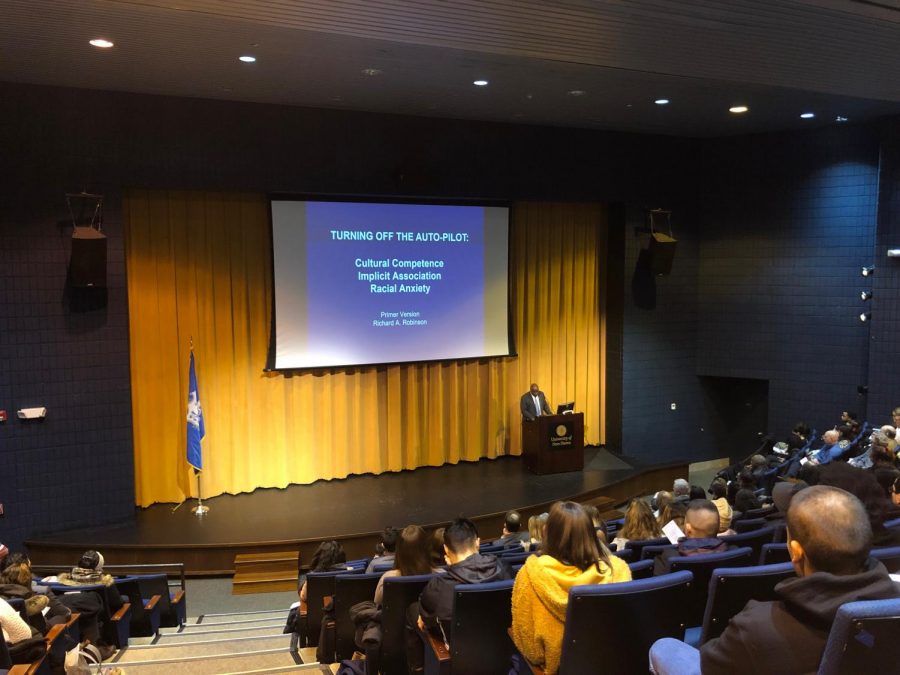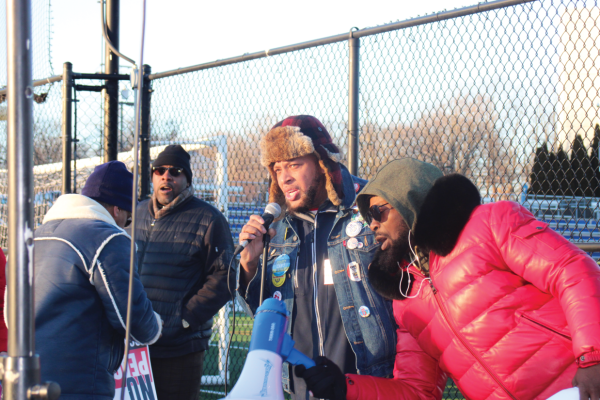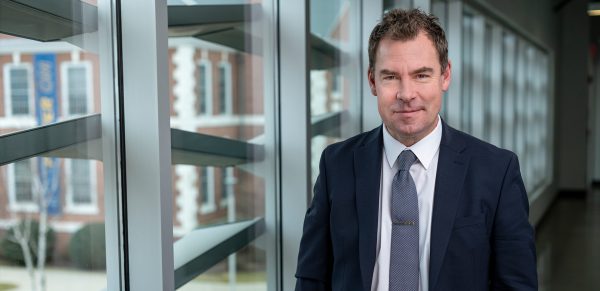Conn. Justice Kicks-Off Black History Month
On Friday, Feb.1, chief justice of the Conn. state supreme court, Richard A. Robinson, came to speak at Bucknall Theater to kick off Black History Month on the University of New Haven’s campus. Robinson’s speech focused on his upbringing as a young black American in Stamford, Conn. Born in 1957, he reflected on how far rights for minority citizens has come in his lifetime.
“I always hear people refer to slavery as this ancient thing in the past.” Robinson said. “But that is completely false, I have a photo of my great grandfather, the first person to be born a free man in our family, holding me. If this picture exists then it really was not all that long ago.”
This is the main point justice Robinson focused on in his speech. Though we have come far with civil rights in this country, we cannot allow ourselves to slip and become complacent. Civil rights issues require constant upkeep and attention.
Chief Robinson is the first black chief justice to serve on Connecticut’s supreme court. He was appointed by Gov. Dannel P. Malloy to fill the seat left empty by the retirement of former Chief Justice Chase Rogers. He was confirmed by the Connecticut General Assembly on Apr. 30, 2018. Robinson will serve the remainder of Rogers’ term, which expires in 2023.
But, it was a long road to get to the Supreme Court. Robinson reflected on how he was spared from some of the racism of his time growing up in Conn. It was not until he and his family traveled to South Carolina, when he was eight that he began to notice the stark differences between his life in the north, and the lives of his family members in the south.
“I could feel the adults tensing up as we crossed the Mason Dixon Line” Robinson said. “We were warned to keep our heads down and stay inside. My mom would say ‘You don’t want to end up like Emmett Till’.”
Emmett Till was only 14 when he was brutally beaten to death by two white men. They attacked him because of a rape accusation against him that was later revealed to be false. Robinson was born just two and a half years after his death, and gained inspiration from this, thinking that if the world wasn’t going to bring justice to his people, then he would do it himself.
“I was always too opinionated for a young black boy, my family was afraid that this would be the death of me,” said Robinson. “Black people were not supposed to have independent thought, but despite my parents warnings, after Till’s death my opinions only got stronger.”
At a Q&A held after Robinson’s speech in Gehring Hall, Robinson gave advice to students at the university about how to educate themselves on social justice issues, especially in regards to race.
“The best way to do it is to expose yourself to that information” said Robinson. “And where would that information come from? The most direct way is people who lived and experienced it. So make sure you ask those people for their stories. Learning our history is really important.”











Mamu Piervincenzi • Feb 13, 2019 at 9:22 pm
Chief Justice Robinson is so right. We need to learn from history in order to become better. Great article.